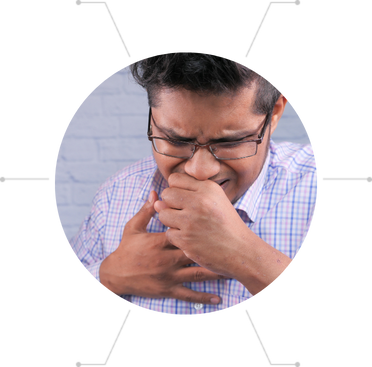- AyurVAID Pharmacy
Dealing with Asthma can be quiet challenging. This chronic lung disease is caused due to inflammation, mucus accumulation and tightening of the airway lining, which make breathing difficult. The triggering factors of asthma can vary- pollen, dust, fumes, smoke, medicines, cold or flu. It is usually managed with help of inhalers and avoiding triggers, but it is nevertheless disruptive to leading a normal life. In Ayurveda, asthma is correlated to Santamaka Swasa, caused by vitiated Vata and Kapha in Pranavaha srotas or pathway of air. Apollo AyurVAID has developed a comprehensive treatment plan for asthma, keeping in mind every minute aspect of the patient’s lifestyle. With dietary and lifestyle changes along with Panchakarma therapy, you can significantly reduce your asthma episodes and lead a healthy life.


AyurVAID’s precision Ayurveda treatment protocols address the root cause of asthma, integrating it with primary management. We provide customised approach after assessing the symptoms, medical history, condition of the patient and the disease. Our treatment aims to reduce the frequency of asthma attacks by improving your lung health.
Make an appointment now and treat your Asthma
better with Kerala Ayurveda techniques at AyurVAID hospitals.


Popular Searches: DiseasesTreatmentsDoctorsHospitalsWhole person careRefer a patientInsurance